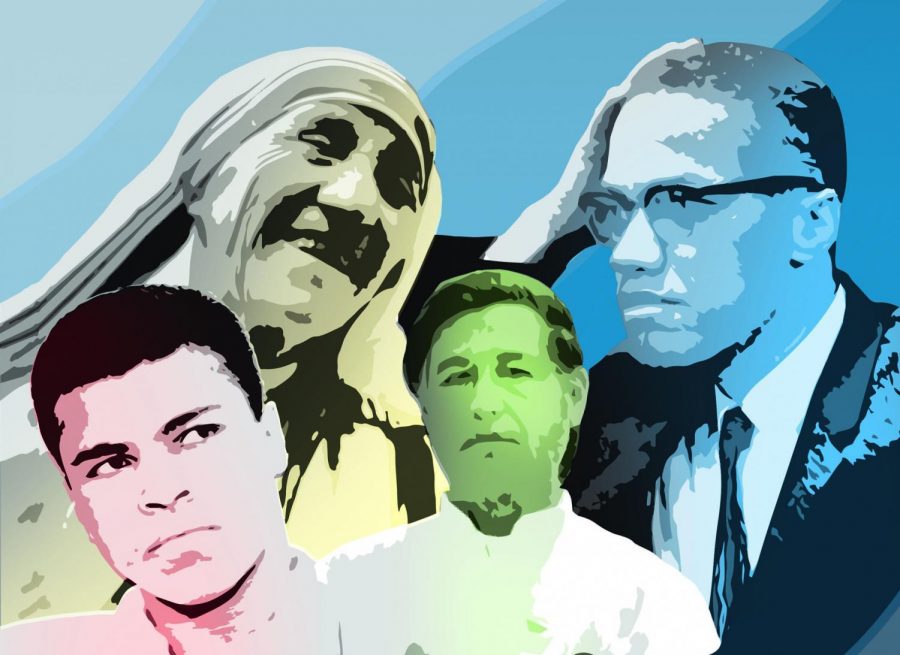‘Social Justice is a way of life’
January 12, 2016
Racism and oppression on campus, as well as throughout the country, were discussed and addressed during Oregon State University’s many social justice retreats held this month.
According to Teresita Alvarez-Cortez, Associate Director of UHDS and Director of Diversity and Initiative Programs, an important aspect of the retreats is to help students, staff and faculty better understand their racial identity and how that relates to their communities.
“The retreats are focused primarily around racial identity and racism, and a piece of it is building a healthy racial identity,” Alvarez-Cortez said. “People have sometimes gotten messages along the way and they don’t have a very positive or healthy image of themselves, so how do you help students build a healthier racial identity and how do we build skill to confront racism?”
Alvarez-Cortez said an important point that is often missed is the ways in which race and racism intersect with all other elements of life and identity.
“There’s no way to talk about racism without talking about other identities. So our work is focused on race and racism, but inevitably and by design, has to be intersectional and talk about things like gender, sexual identity, age, family status, class, and everything else.”
This past weekend there were two retreats that provided a safe space to empower students of color — Racial Aikido — and another retreat to offer perspectives of white identity — Examining White Identity in a Multicultural World.
These two retreats were the first retreats established at OSU about seven years ago. Later this month, the new Multiracial Aikido, a retreat designed for multiracial students, and Social Justice for International Students retreats will be making their debut. Additionally, the second Social Justice Intercultural retreat will take place spring term.
According to Michele Ribeiro, Interim Assistant Director of Mental Health Promotion at CAPS, the retreats appear to be working. Many students report in their post-retreat evaluation that they feel more confident in their knowledge of social justice.
“We’re really trying to empower our students to be able to feel competent and confident in addressing racist remarks or ending racism or oppression,” Ribeiro said.
According to Viña, other feedback from student attendees has been overwhelmingly positive and former student attendees are a major source for new recruits.
According to Jennifer Viña, Associate Director of UHDS and Director of Marketing and Communications for UHDS, the retreats were developed after OSU staff attended a conference and learned of the University of Vermont’s social justice retreat program. In an effort to make the OSU community more inclusive, OSU staff asked the University of Vermont if they could utilize and modify their curriculum. Since then, the retreat program has expanded and the collaboration with the University of Vermont has continued.
“I think that from the very beginning, that first pilot retreat in 2009 to now, the reason that this program keeps growing and the support for it keeps growing is that every time a group of students goes out, they come back with a profound experience that they share and say ‘this had a life-changing impact on me,’” Viña said. “And we, as colleagues and professionals, say ‘how can we provide more of these opportunities to our students?’”
According to Jesseanne Pope, a senior studying sociology and one of the three student organizers of Speak Out OSU, her first experience at the Examining White Identity retreat was transformative and would impact her involvement in the OSU community. Prior to attending Examining White Identity for the first time, Pope had been engaged in feminist work. According to Pope, this work and her identity as a woman served as her introduction to more social justice issues. Since her first time attending the retreat, Pope has returned as a student mentor.
“After attending Examining White Identity, not only was I able to understand more of myself and to develop my identity, but I was able to understand what intersectionality was, and what it meant for me to be a woman and to be white at the same time,” Pope said. “It’s not a nine to five and then you’re done, social justice is a way of life and it’s a lens through which I interpret everything.”


















































































![Newspaper clipping from February 25, 1970 in the Daily Barometer showing an article written by Bob Allen, past Barometer Editor. This article was written to spotlight both the student body’s lack of participation with student government at the time in conjunction with their class representatives response. [It’s important to note ASOSU was not structured identically to today’s standards, likely having a president on behalf of each class work together as one entity as opposed to one president representing all classes.]](https://dailybaro.orangemedianetwork.com/wp-content/uploads/2025/03/Screenshot-2025-03-12-1.00.42-PM-e1741811160853.png)
























